© 2022 All rights reserved Worktop Library
Imagine this: you’ve just invested in stunning porcelain worktops for your kitchen, and they shine like a dream. But now, you’re wondering how to clean porcelain worktops without causing damage. You’ve definitely landed in the perfect place!
Cleaning and maintaining porcelain is easy as long as you know what you’re doing. And here’s a crucial tip: never use bleach and other abrasives for cleaning and removing stains from porcelain countertops. Instead, we’ll show you how to keep your surfaces looking brand new with the right methods and tools.
Table of Contents
- Introduction. What Are Porcelain Worktops?
- How Are Porcelain Slabs Made?
- Sintering Process
- Enhanced Durability
- Comparison to Ceramic Tiles
- Everyday Cleaning for all Porcelain Brands
- Brand-Specific Cleaning Guidelines
- Neolith Worktops
- Dekton Worktops
- Regular Maintenance
- Specific Cleaning Tips
- Ascale Worktops
- Cleaning Simplicity
- What Not to Use
- Techlam Worktops
- Daily Cleaning Methods
- Stain-Specific Tips
- Laminam Worktops
- General Cleaning
- Handling Stains
- Sapienstone Worktops
- Routine Care
- Cleaning Restrictions
- Xtone Worktops
- Maintenance Tips
- Stain Removal
- Are Wipes Safe for Porcelain Worktops?
- Disinfecting Wipes and Food Surfaces
- Recommended Practices for Wipe Use
- Quick Video Guide
- 1-Minute YouTube Video on Porcelain Worktop Care
- Choosing Porcelain Worktops for Your Home
- Benefits and Versatility
- Tips for Homeowners, Designers, and Builders
- BONUS: Printable PDF Cheatsheet
- Common Cleaning Tasks for Porcelain Worktops
- Everyday Cleaning
- What to Avoid
What are Porcelain Worktops? Why Are They Trending?
Porcelain worktops are gaining popularity thanks to their excellent performance and life-like patterns. Unlike traditional ceramic tiles, porcelain slabs are much larger and thinner, offering marble-replica veining, modern concrete effects and other stone-replica veining for a natural look that’s perfect for your contemporary and classic interiors.

How Are Porcelain Slabs Made?
Porcelain slabs, known as Sintered stone, are a cousin to traditional porcelain, are made using a similar process but incorporate additional minerals to enhance their durability. These materials are fused together at a molecular level through a process called sintering, making them even more robust than your classic porcelain tile.
“But manufacturers of surfaces such as Neolith, Dekton, Xtone, SapienStone, Laminam and more than 20 other sintered porcelain brands with presence in London and the UK use different formulas for their products. “
Both the minerals and the adhesives can change between the brands. This means that while the surfaces might look similar, they can have diverse properties and maintenance needs, which is why each brand has specific cleaning instructions.
What All Porcelain Brands Agree On
The cleaning guidelines and maintenance tips for stain-removal of the top 7 porcelain brands all confirm that the main answer about how to clean porcelain worktops is that you should clear spillages quickly, using a damp cloth with warm water and a little mild soap when needed in circular motions to avoid streaks.
All sintered stone brands advise against using abrasive products such as bleach or ammonia that can potentially tarnish the surfaces.

If using soapy, warm water doesn’t remove stains from your porcelain worktop, doesn’t work, don’t worry, each of our top porcelain brands like Neolith, Dekton, Ascale, Techlam, Laminam, Sapienstone, and Xtone will provide specific tips and tricks to tackle those persistent stains.
Neolith Worktops: What Are They and How to Clean Them
Neolith is a pioneering brand in the world of sintered stone worktops. Founded in 2009, Neolith was the first major manufacturer to launch large-format porcelain slabs with visually stunning designs, which are both environmentally friendly and incredibly versatile. Wondering how to clean Neolith countertops effectively? See below:
For everyday cleaning, Neolith recommends a mixture of soapy water and a soft cloth works wonders. For tough stains, Neolith recommends using a pH-neutral cleaner. Be mindful of avoiding abrasive sponges and high-alkaline detergents or Hydrofluoric acid to maintain the pristine surface. Neolith emphasizes that spills should be cleaned up immediately to prevent stains from setting.
The guide advises avoiding the following when maintaining Neolith countertops:
- Ceramic knives and heavy impact: Avoid using ceramic knives on Neolith surfaces as they can cause scratches. Refrain from hitting the Neolith countertop with blunt or heavy objects, particularly around the edges, to prevent chipping or breaking.
- Waxes, oily soaps, and impregnating agents: avoid using waxes or other treatments (such as hydro-oil repellents) as their application is unnecessary and can leave an oily film on the surface after several washes.
Check out specific care instructions here.
Dekton Worktops: What is Dekton and How to Clean it
Dekton by Cosentino is known for its ultra-compact surfaces that can withstand high temperatures and UV rays. Since its inception in 2013. Dekton uses sand, glass, Silestone quartz, and about 20 other minerals in their formula which is kept secret by the Cosentino Group, and has become a go-to choice for both indoor and outdoor settings.
For regular maintenance, use a soft cleanser and water. For more stubborn stains, Dekton surfaces respond well to oxygenated bleach. Remember to be thorough when you rinse to avoid any residue.
For regular cleaning, Dekton recommends using Q-Action, a window cleaning spray by Cosentino that can be replaced by brands such as Windowlene Glass & Shiny Surfaces Spray, Mr Muscle Window and Glass Cleaner, and Astonish Window & Glass Cleaner, which you can find in major supermarkets.
Dekton cleaning tips: you can use a sponge or scouring pad with neutral soap and water. For stubborn stains, you can use cream detergents with abrasive particles, such as CIF Cream (more appropiate for Dekton matte finish) or solvents like acetone.
Specific products for different stains in Dekton worktops: alkaline detergents for grease, solvents for ink, and acids for rust. Avoid mechanical damage to corners, high heat exposure, metal scouring pads, and inappropriate cleaning products, as these may void your product guarantee.
For detailed cleaning guidelines, visit our PDF resource.
Ascale Tau Worktops: What is Ascale Tau and How to Clean Ascale Porcelain
Ascale Tau is a fresh name in the sintered stone industry belonging to the Pamesa Group originally founded in 1972 . The Spanish group Pamesa, Europe’s largest ceramic tile producer, is continuing its growth with a revenues of approximately £1 billion in 2023, offering large-format porcelain slabs renowned for their natural look and robust quality.
The group also invested 343 million euro to increase production and logistics capacity whilst improving energy efficiency. Ascale has 150,000 square metres of land in Castellón for the storage and treatment of imported raw materials.
How to clean Porcelain Worktops from Ascale Tau
When cleaning Ascale surfaces, simplicity is key—mild soap and water are typically sufficient. Rinse with warm water to remove grease marks.
What should you not use on Ascale porcelain countertops: Avoid metal scourers, as they can leave traces. Promptly clean staining liquids like coffee or wine. ASCALE surfaces resist heat, but using trivets is advised. Avoid using ceramic sharp knives or scissors directly on the surface, impacts on edges, and chemicals like hydrofluoric acid.
Check out the full cleaning guide here.
Techlam Worktops: What Are They and How to Clean Them
Techlam by Levantina brings elegance and resilience to the table. Since launching in 2009, it has gained popularity for its slim profiles and wide range of patterns. Techlam Top is the porcelain brand with the highest number of new launches in 2024, becoming a major contender to main players like Caesarstone porcelain, Neolith and Dekton.
For day-to-day cleaning Techlam recommends using a soft cloth with warm, soapy water. ,
For specific stains: use an acid descaling agent for oxides, cement, grouting joints, and plaster. For tough spots from limescale and greasy stains, use either an alkaline detergent or an acid descaling agent. Resin and wax need a solvent. Regular cleaning with suitable detergents maintains the surface, avoiding harsh cleaners and scrubbing tools.
Find more tips on maintaining your Techlam surfaces here.
Laminam Worktops: What Are Lamimam Ceramic Surfaces and How to Clean Them
Laminam is celebrated for its innovative and eco-friendly approach to porcelain surfaces. Founded in 2001, Laminam offers a remarkable blend of Italian design and engineered robustness.
The company recently launched twO by Laminam: The world’s thinnest porcelain at only 2mm thick making them sustainable, and lightweight to create stunning kitchen backsplashes or bathroom walls with minimal environmental impact.
Laminam’s cleaning is straightforward; water and a neutral detergent usually do the trick. For food stains, use neutral detergents like Fila PS87.
Additionally, clean greasy substances with hot water, neutral detergent, and degreaser. Treat limescale and rust with acid-based cleaners.
Avoid harsh chemicals, abrasive tools, and dragging heavy objects. Always test disinfectants first. More in-depth instructions can be found here.
Sapienstone: Are They Porcelain Worktops and How to Clean Them
Sapienstone worktops are another material that alongside Laminam shines with its Italian craftsmanship and advanced sintered stone technology being amongst the first tEaling’s full body porcelChelsea’saying patterns that go through the thickness of the slab when polishing the worktop edges. Since 2016, Sapienstone has been synonymous with high-quality kitchen worktops.
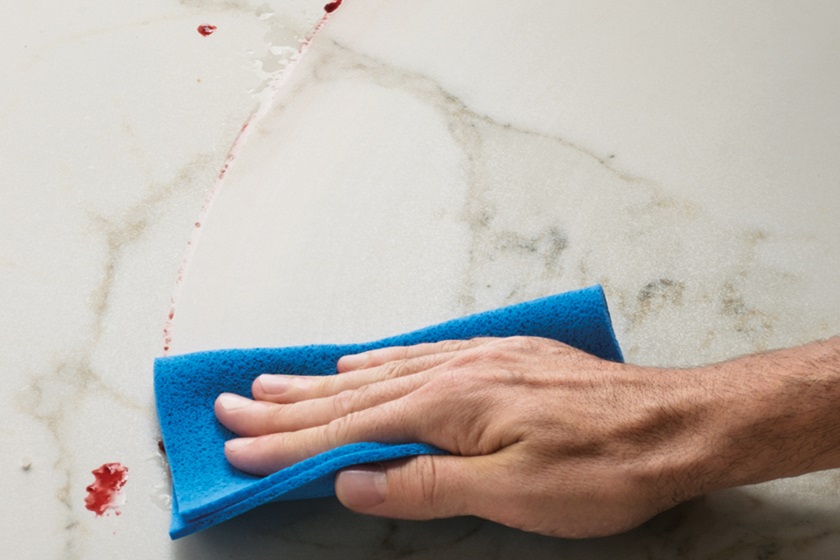
For everyday care, stick to warm water and soap. Persistent stains can be tackled with pH-neutral cleaners. Clean fresh stains quickly to prevent buildup, and use a slightly abrasive sponge and degreaser for persistent stains.
What to avoid: Avoid harsh alkaline detergents, shocks to edges, and excessive water near mounting holes. Always test cleaning products on a small area first. More cleaning tips are available here.
Xtone Worktops: What Are They and How to Clean Them
Xtone by Porcelanosa Group offers slabs of over 320 x 160 cm with superior durability. Launched in 2016, Xtone surfaces are perfect for both indoor and outdoor spaces, thriving in diverse conditions wheather you are deigning an Ealing leafy gardens or developing a block of Chelsea’s modern urban homes.
For regular Xtone worktops maintenance, all you need is warm soapy water. For those pesky stains, non-abrasive cleaners come to the rescue.
And do you know how to clean porcelain worktops from Xtone safely? Always test your cleaning product on the least visible area to start so you can ensure it won’t damage the surface. Once you see the result, expand to the rest of the countertops. Detailed cleaning advice can be found here.
Now that We’ve Covered the Top Brands, Let’s Address a Common Question: Are Wipes Safe for Porcelain Worktops?
Are Wipes Unsafe for Food Surfaces Like Worktops, Tables, and Breakfast bars?
When it comes to food surfaces like worktops and tables, using disinfecting wipes can be a double-edged sword. While they effectively kill bacteria and viruses, they may leave harmful residues that aren’t food-safe.
Our team checked the frequently asked question section of leading wipe manufacturer Dettol, which states ‘ Power & Pure Advance Kitchen Wipes are suitable for work surfaces.’
But While these wipes do a great job of disinfecting, they can leave behind chemical residues.
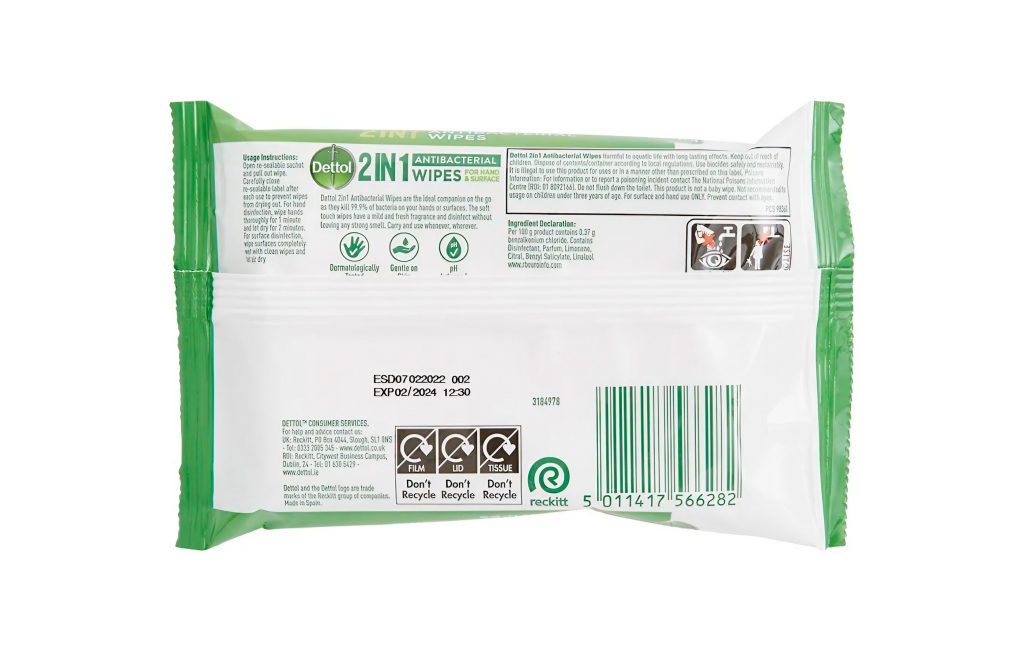
Wipes include things like ethanol, sodium, and alcohol for germ protection. They also contain helpers such as citric acid and perfum for freshness.
Specifically, Dettol Power & Pure Advance Kitchen Wipes contain 2.28g of lactic acid per 100g of product, with less than 5% nonionic surfactants, disinfectant, and parfum.
So, after cleaning, wipe down the surface with water and dry it well. This way, you keep the space free from chemicals safe for prepping meals.
We asked this question to several staff members, and Maria told us: ‘If you’re like me and like to keep your kitchen countertops, table or vanity tops free of bacteria, you’re supposed to rinse the surface with a little water to get rid of potential chemical traces’.
Maria Kairuz, Operations Manager at The Worktop Library
So there you have it. Always rinse the area with water and dry it thoroughly after using such wipes to ensure your surfaces are safe for food preparation.
If you were wondering if you can use wipes such as Dettol, Mr Muscle or other brands on your kitchen worktops, the answer is yes, but with a little caution.
Quick Video Guide: How to Clean Porcelain according to the 7 leading brands
Short on time but still curious about cleaning porcelain worktops? No worries! Watch our quick and helpful 1-minute YouTube video summarising the highlights. Click play below and let us guide you through the essentials of porcelain worktop care.
Choosing Porcelain Worktops for Your Home
Porcelain worktops offer a blend of natural style aesthetics, durability, and super easy maintenance for many types of home environments. Whether you’re a homeowner in Bethnal Green exploring your potential new kitchen surfaces, an interior designer in Paddington seeking curated looks, or a builder in Richmond planning an outdoor project, porcelain worktops stand out as a noteworthy and easy-to-clean material.
From the sophisticated Neolith to the resilient Dekton and the versatile Laminam, each brand brings something unique to the table. The cleaning and maintenance tips provided in our article will help ensure that your porcelain surfaces remain pristine, regardless of the setting or the stains they encounter.
Want to give porcelain worktops a go? They’ve got the looks, they’ve got the toughness, and now—with this guide—you’ve got the know-how to keep them in top shape.
BONUS: Printable PDF cheat sheet on how to tackle common cleaning tasks for your porcelain worktops.
If you are experiencing porcelain staining, and are wanting to know how to clean porcelain worktops effortlessly, having all the information at your fingertips is crucial. To help, we’ve compiled a handy cheat sheet on how to clean porcelain worktops with different stains. This simple chart will assist with cleaning your porcelain surfaces and keep rooms pristine.

Additional Tips
Here are some additional tips you could use when cleaning your porcelain worktops:
- Yes to Microfiber Cloths: For streak-free cleaning, use a microfiber cloth. It quickly picks up dirt and grime without scratching the surface.
- No to Harsh Brushes: Stick to soft sponges or cloths. Harsh scrub brushes can leave micro-scratches, especially if you have a polished porcelain surface.
- Spot Treat with Baking Soda: For stubborn stains like coffee or wine, make a paste using baking soda and water. Let it sit for a few minutes before gently scrubbing.
- Steam Cleaning: Sanitize without chemicals using a handheld or portable steam cleaner. This works well for larger surface areas.
- Use Non-Acidic Cleaners: Even though some cleaners contain mild acids, always test first, as certain acidic cleaners can dull the finish over time.
- Seal Edge Joints: Over time, spills can seep into the edges, causing discolouration. Applying a sealant to edge joints can offer extra protection.
- Rotate Frequently Used Areas: If possible, rotate where you place hot items to prevent concentrated wear or heat exposure in one area. One of our customers in Ealing noticed permanent marks on her stone worktops after moving her flower pot from the place it was after 15 years. The chemicals in the spray seeped into the surface over time.
Frequently Asked Questions
- 1. Can I use vinegar to clean my porcelain worktop?
Vinegar is acidic and may dull or damage the surface of your porcelain worktop over time. Instead, use mild soapy water for everyday cleaning.
- 2. Is it safe to place hot pots directly on porcelain worktops?
Porcelain worktops are typically between 250C-300C heat-resistant, but it’s best to use trivets or heat pads as it will extend the lifecyle of the porcelain.
- 3. How do I prevent streaks after cleaning?
To avoid streaks, rinse the worktop thoroughly with clean water after applying soap, and dry the surface with a microfiber cloth to leave a streak-free finish.
- 4. Can porcelain worktops stain?
While porcelain is the most stain-resistant worktop material on the market, some substances like food colourants can leave marks if left for a prolonged period. Clean spills promptly to prevent staining.
- 5. Can I cut directly on porcelain worktops?
Although porcelain is scratch-resistant, cutting directly on the surface can dull your knives and potentially leave small scratches, especially on polished finishes. Always use a cutting board.
RELATED: How to remove stains from your marble worktop
Author:

Alan Nussbaum
Meet Alan Nussbaum, our Sales and Marketing Manager. With almost two decades of experience, Alan’s impressive track record includes creating one of the first online stone companies in 2012 and pioneering the acceptance of cryptocurrencies in construction in 2018 before co-founding The Worktop Library with Maria.
Alan’s work is featured in numerous Stone and Home Decor magazines. In addition, he collaborates with the industry’s leading stone brands, cementing his reputation as an innovator.
Before starting a thriving career in the stone industry, Alan honed his skills by overseeing luxury fashion brands such as Burberry, Matches Fashion, and Patrick Cox. With his unique blend of experience and expertise, Alan is a true trailblazer in the stone worktop industry. His passion for delivering exceptional service is evident in every aspect of his work.
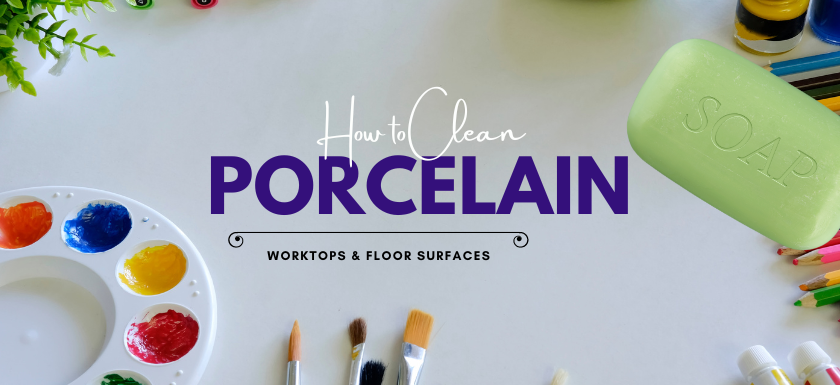
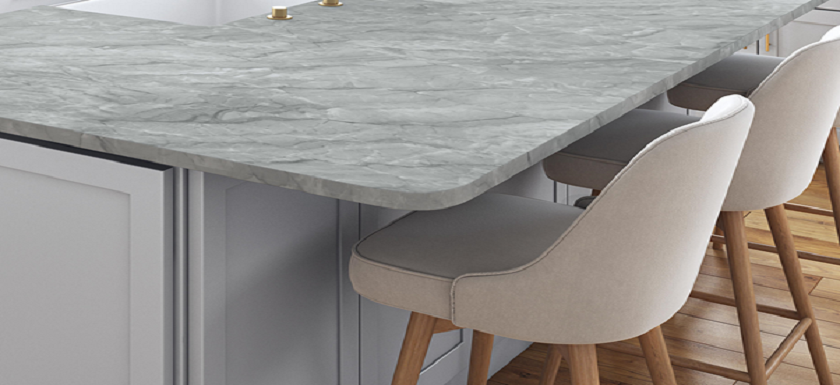 Apr 16 2021
Apr 16 2021 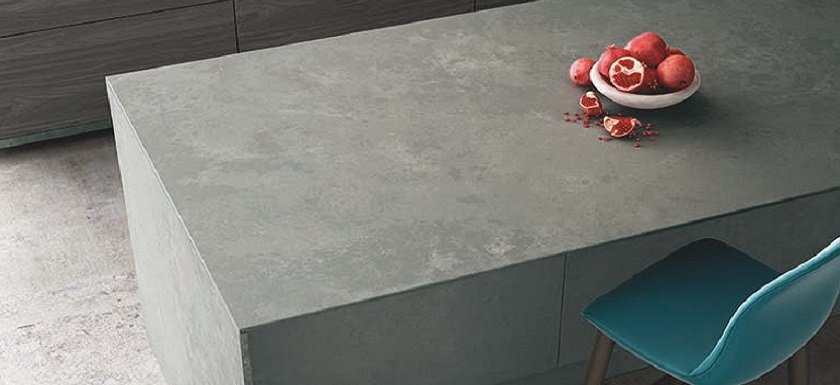 Apr 19 2021
Apr 19 2021  May 05 2021
May 05 2021 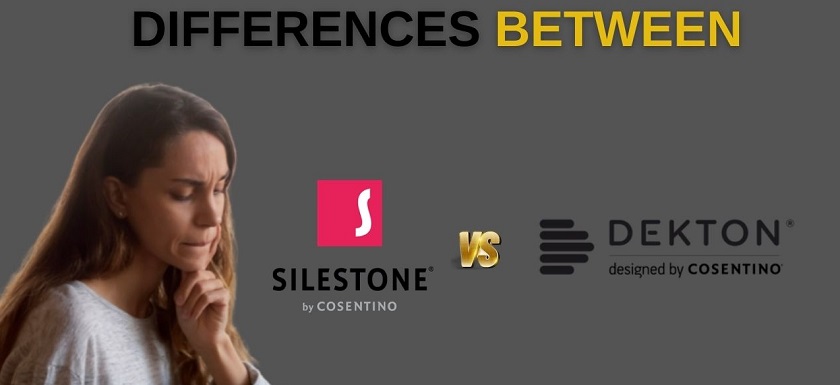 May 07 2021
May 07 2021 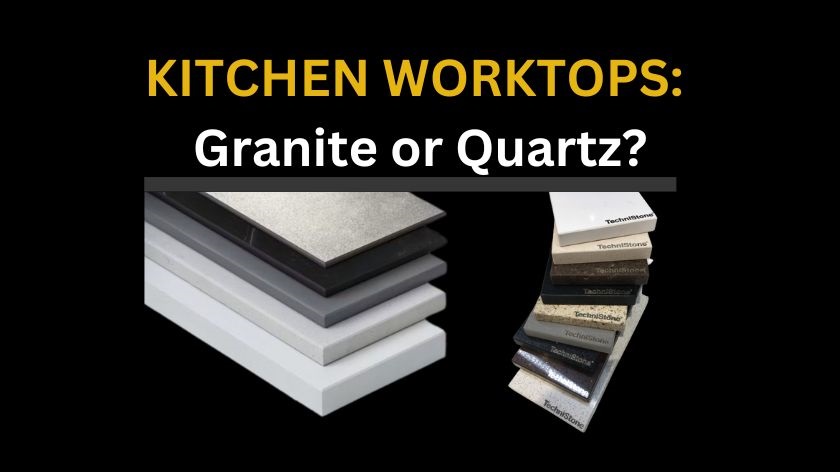 May 15 2021
May 15 2021  May 17 2021
May 17 2021 